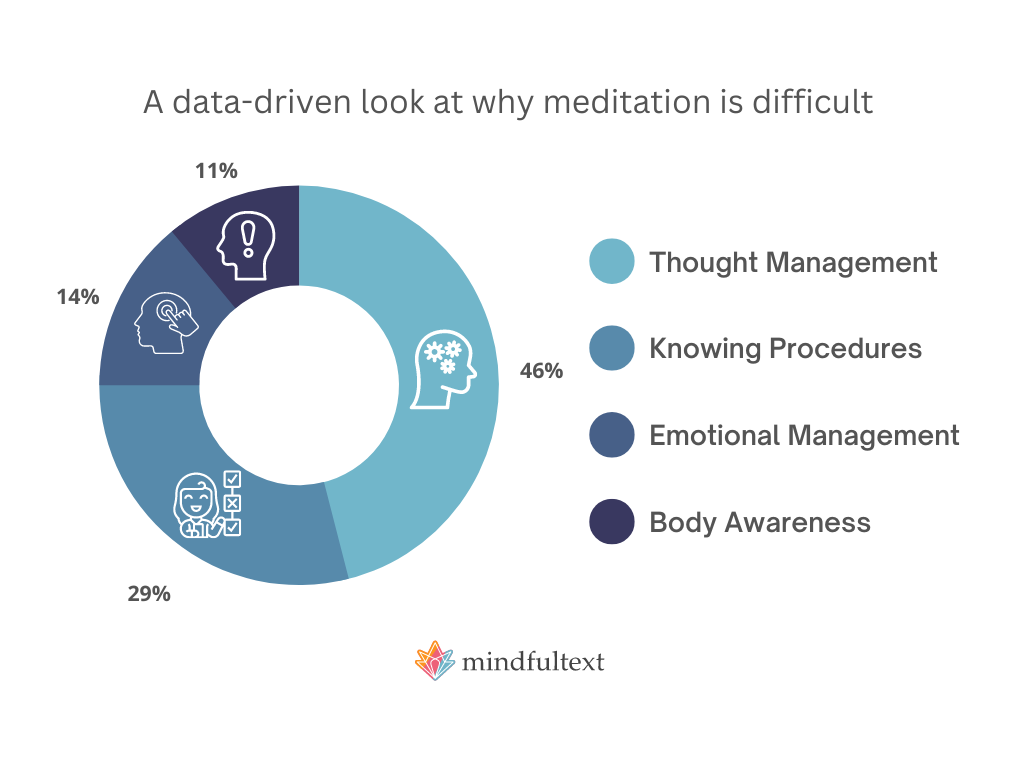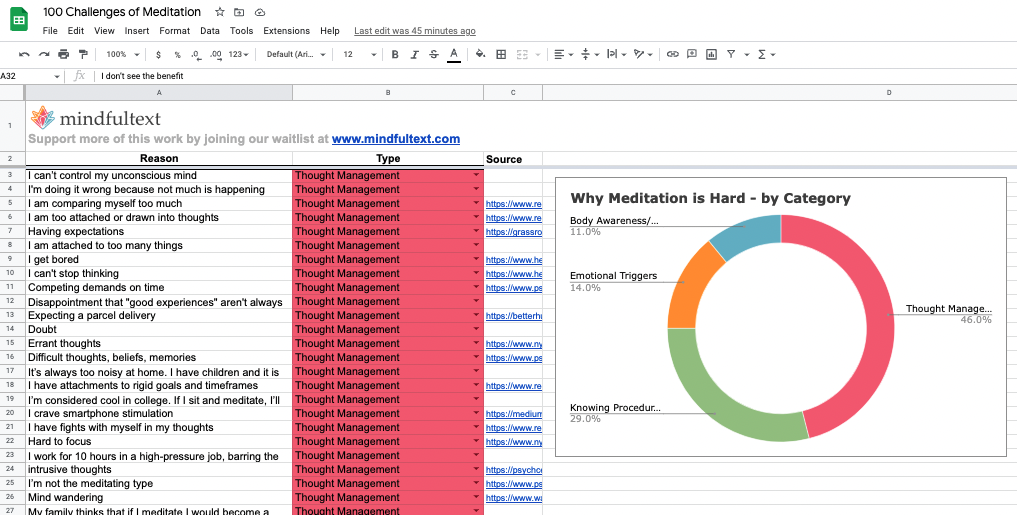This post expands on a previous article called The Main Reason Why Meditation is Hard. Our goal is to help readers break through barriers and ultimately benefit from a much needed tool for wellbeing, which impacts areas of life personally and professionally.

Summary & Conclusion
We diligently searched for reputable authors and companies that talk about the challenges of meditation and discovered 100 reasons why people perceive meditation as difficult. We organized and categorized these points and found 4 common threads.
In this article we propose 4 skills that address the main challenges of meditation and define them below:
- Thought Management - the ability to process and/or let go of thoughts as they come and go during meditation
- Knowing Procedures - understanding how to start, what to expect, and context around which tools or protocols can be used situationally
- Emotional Management - the ability to transmute strong feelings and difficult emotions and move forward
- Body Awareness - the ability to deal with and work through discomfort, such as an itch or lower back pain during meditation
We concluded that mindfulness should be considered a prerequisite to meditation as it helps address core challenges that make meditation difficult.
1) Thought Management
46% of the reasons why people convince themselves to not meditate is attributed to thought management.
See some of the reasons below:
- I can’t control my unconscious mind
- Expecting a parcel delivery
- I’m not the meditating type
- There are too many distractions, it’s too noisy
- When society is facing numerous challenges– poverty, conflict, unemployment, corruption - at this time you expect me to sit and meditate when so much needs to be done.
2) Knowing Procedures
Knowing procedures and thought management go hand in hand. Managing thoughts can be be addressed by knowing how to do it. Many of these reasons can be addressed by trying different meditations and understanding what to expect.
Here are some examples:
3) Emotional Management
Emotions are similar to thoughts, but they can be perceived as much more intense. They can also come with physical sensations where as thoughts do not typically. Learn more about managing emotions here.
Here are some reasons:
4) Body Comfort
Many people believe that they need to sit in a lotus position with fingers touching in a particular way in order to meditate. This is not 100% accurate. You can meditate while laying or sitting down. The main issue with meditating in more comfortable positions is that falling asleep becomes an issue.
Here are some reasons:
100 Reasons Why Meditation is Hard


